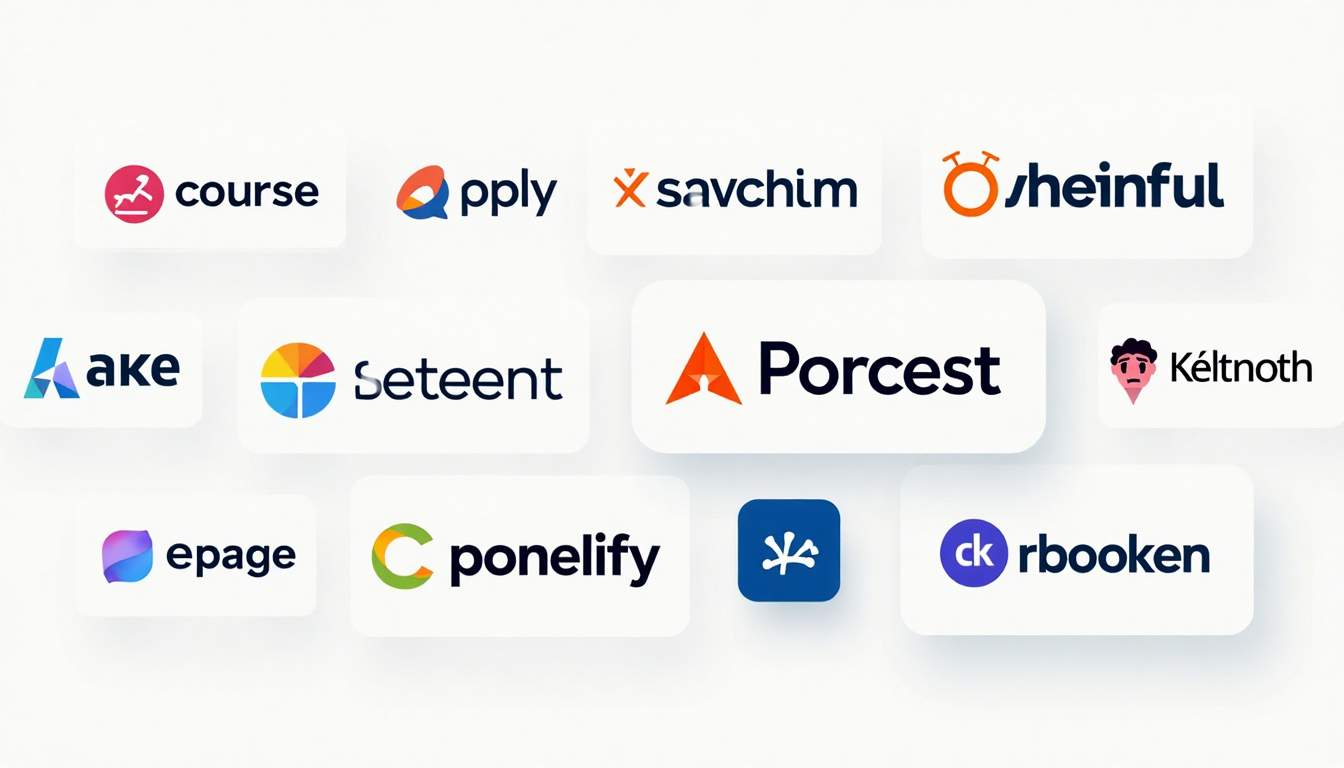In today’s digital landscape, the opportunities to make money online are virtually limitless. However, to tap into these opportunities effectively, having the right tools at your disposal is crucial. Whether you’re an aspiring affiliate marketer, a seasoned blogger, or a freelancer juggling multiple projects, the right tools can streamline your efforts and enhance your productivity. This article explores the best money-making tools across various categories, ensuring you have everything you need to succeed online.
Affiliate Marketing Tools
Affiliate marketing has become one of the most popular ways to earn passive income online. With the right tools, marketers can optimize their strategies, track performance, and maximize their earnings. One essential tool for any affiliate marketer is a robust tracking software. This allows you to monitor clicks, conversions, and commissions in real-time, giving you insights into which campaigns are performing well. By analyzing this data, marketers can make informed decisions about where to allocate resources and how to tweak their strategies for better results.

Another vital component is a reliable email marketing platform. Building an email list is crucial for affiliate marketers, as it allows for direct communication with potential customers. Tools like Mailchimp or ConvertKit can help you design effective email campaigns, manage subscribers, and automate follow-ups, making it easier to nurture leads and drive sales. Furthermore, segmenting your email list based on user behavior or preferences can significantly increase engagement rates, allowing you to send personalized content that resonates with your audience.
Additionally, utilizing social media management tools can enhance your affiliate marketing efforts. Platforms like Buffer or Hootsuite enable you to schedule posts, track engagement, and analyze your social media performance. This ensures that your affiliate links reach a wider audience while saving you time and effort. Engaging with your followers through comments and messages can also foster a sense of community, encouraging them to trust your recommendations and ultimately leading to higher conversion rates.
Moreover, content creation tools are indispensable for affiliate marketers looking to produce high-quality, engaging materials. Platforms such as Canva for graphic design or Grammarly for writing assistance can help you create visually appealing content and ensure that your messaging is clear and error-free. High-quality content not only attracts visitors but also establishes your authority in your niche, making it more likely that your audience will act on your affiliate links. Incorporating diverse content types, such as videos, infographics, and blog posts, can also cater to different learning styles and preferences, further enhancing your marketing strategy.
Lastly, analytics tools like Google Analytics play a crucial role in understanding your audience’s behavior. By tracking metrics such as bounce rates, session duration, and user demographics, you can gain valuable insights into what content resonates with your audience and what doesn’t. This data allows you to refine your strategies, ensuring that your affiliate marketing efforts are not only effective but also aligned with the interests and needs of your target market.
Blogging Platforms & SEO Tools
Blogging remains one of the most effective ways to generate income online, but it requires more than just great content. Choosing the right blogging platform is essential for both ease of use and SEO optimization. WordPress, for example, is a widely-used platform that offers a plethora of themes and plugins to enhance your blog’s functionality and appearance. With its user-friendly interface, even those with minimal technical skills can create a professional-looking blog in no time. Additionally, platforms like Wix and Squarespace provide drag-and-drop features that allow for greater customization, making it easier to build a unique online presence that reflects your brand’s identity.
SEO tools are equally important for driving organic traffic to your blog. Tools like SEMrush or Ahrefs can help you conduct keyword research, analyze competitors, and track your website’s ranking. By understanding what your audience is searching for, you can tailor your content to meet their needs and increase your visibility. Furthermore, utilizing tools like Yoast SEO can guide you in optimizing your posts for search engines, ensuring that you’re not only creating valuable content but also making it discoverable. The right combination of keywords, meta descriptions, and alt text can significantly enhance your blog’s performance in search engine results.
Moreover, integrating analytics tools like Google Analytics into your blog can provide valuable insights into your audience’s behavior. This data can inform your content strategy, helping you create posts that resonate with your readers and keep them coming back for more. Understanding metrics such as bounce rate, average session duration, and user demographics can help you refine your approach and focus on what truly engages your audience. Additionally, experimenting with A/B testing can reveal which headlines or calls-to-action perform better, allowing you to optimize your content for maximum impact and engagement.
In addition to these tools, leveraging social media platforms can amplify your blog’s reach. By sharing your posts on platforms like Facebook, Twitter, and Instagram, you can drive traffic back to your blog and engage with your audience in real-time. Creating shareable content, such as infographics or videos, can also enhance your visibility and encourage readers to spread the word. Collaborating with influencers or guest bloggers can further expand your reach, introducing your blog to new audiences and fostering a sense of community around your niche.
Project Management Tools for Freelancers
Freelancers often juggle multiple clients and projects simultaneously, making effective project management crucial. Tools like Trello and Asana offer intuitive interfaces for organizing tasks, setting deadlines, and collaborating with clients. These platforms help freelancers stay on top of their workload and ensure that nothing falls through the cracks. By utilizing features such as boards, lists, and cards, freelancers can visualize their workflow, prioritize tasks based on urgency, and even automate repetitive processes. This not only saves time but also enhances productivity, allowing freelancers to focus more on delivering quality work rather than getting bogged down by administrative tasks.

Time-tracking tools are also essential for freelancers, as they help monitor how much time is spent on various tasks. Applications like Toggl or Harvest allow users to track their hours, making it easier to bill clients accurately and assess productivity. Understanding where time is spent can lead to better time management and increased profitability. Many of these tools also offer reporting features that provide insights into work patterns and efficiency, enabling freelancers to make informed decisions about their schedules and workload. This data can be invaluable for identifying peak productivity times and adjusting work habits accordingly, ultimately leading to a more balanced and rewarding freelance career.
Additionally, communication tools such as Slack or Zoom can facilitate seamless interactions with clients and team members. Clear communication is key in the freelance world, and having the right tools can enhance collaboration and build stronger working relationships. These platforms not only support instant messaging and video calls but also integrate with other project management tools, creating a centralized hub for all project-related discussions. This integration helps keep all stakeholders on the same page, reducing the chances of miscommunication and ensuring that everyone is aligned with project goals and timelines. Moreover, the ability to share files and feedback in real-time can significantly speed up the revision process, making it easier for freelancers to meet client expectations and deadlines.
In addition to these tools, many freelancers find value in using cloud storage solutions like Google Drive or Dropbox. These platforms allow for easy file sharing and collaborative editing, ensuring that all project materials are accessible to both freelancers and clients at any time. This level of accessibility not only enhances collaboration but also provides a backup solution for important documents, safeguarding against data loss. Furthermore, the ability to organize files into folders and categorize them by project can streamline workflows and help freelancers maintain a tidy digital workspace. As freelancers continue to adapt to the evolving digital landscape, leveraging these tools can significantly enhance their efficiency and effectiveness in managing projects.
Top Course Creation Platforms
With the rise of online learning, creating and selling courses has become a lucrative venture for many. Platforms like Teachable and Thinkific provide user-friendly interfaces for course creation, allowing educators to design engaging content without needing extensive technical skills. These platforms often include features like quizzes, certificates, and community forums to enhance the learning experience. Additionally, many of these platforms offer customizable templates and drag-and-drop functionality, making it easier for instructors to create visually appealing courses that can captivate learners from the start. The ability to incorporate multimedia elements such as videos, audio clips, and interactive assignments can further enrich the educational experience, catering to various learning styles.

Marketing your course is just as important as creating it. Utilizing tools like Kajabi can help you build landing pages, manage email campaigns, and automate marketing efforts. This ensures that your course reaches the right audience and maximizes enrollment. Moreover, leveraging social media platforms can amplify your marketing strategy, allowing you to connect with potential students through engaging content and targeted ads. Building a strong online presence not only enhances visibility but also establishes your credibility as an expert in your field, which can significantly influence prospective learners’ decisions.
Furthermore, engaging with your students through discussion forums or live Q&A sessions can foster a sense of community and encourage more sign-ups. Building a loyal following can lead to repeat customers and referrals, significantly boosting your income potential. Regularly collecting feedback from your students can also help you refine your course content and delivery, ensuring that it remains relevant and valuable. By actively participating in your course’s community, you can create a supportive learning environment that motivates students to complete the course and share their positive experiences with others, further expanding your reach.
Time-Saving Productivity Apps
In the fast-paced online world, time is of the essence. Productivity apps can help streamline daily tasks and enhance efficiency. Tools like Notion or Evernote allow users to organize notes, to-do lists, and project outlines in one place, reducing the time spent searching for information. The versatility of these applications means they can be tailored to fit various workflows, whether you’re a student managing assignments or a professional overseeing multiple projects. With features like tagging, templates, and collaborative options, users can create a personalized system that evolves with their needs, making it easier to track progress and stay motivated.
Automation tools such as Zapier can connect different applications and automate repetitive tasks, saving valuable time. For instance, you can set up Zaps to automatically save email attachments to your cloud storage or post your new blog entries on social media without lifting a finger. This not only minimizes the risk of human error but also frees up mental bandwidth for more creative and strategic thinking. Additionally, platforms like IFTTT (If This Then That) offer similar capabilities, allowing users to create custom automations that can enhance personal productivity, such as receiving notifications for important emails or syncing data across devices seamlessly.
Lastly, consider using focus apps like Forest or Focus@Will to minimize distractions and enhance concentration. These tools can help you stay on task, ensuring that your work is completed efficiently and effectively. By incorporating techniques like the Pomodoro Technique, which breaks work into intervals with short breaks, these apps promote sustained focus and can even gamify productivity, making the process more enjoyable. Moreover, some focus apps provide ambient sounds or music specifically designed to enhance concentration, catering to different preferences and helping users find their ideal working environment.
In conclusion, the right money-making tools can significantly impact your success in the online world. By leveraging affiliate marketing tools, blogging platforms, project management software, course creation platforms, and productivity apps, you can streamline your efforts and maximize your earnings. Embrace these tools, and watch your online ventures thrive!
